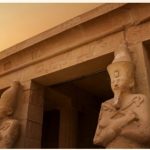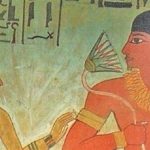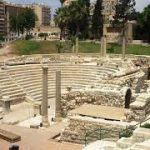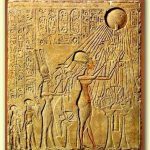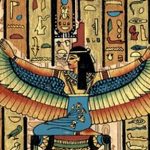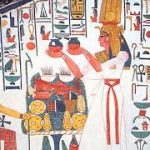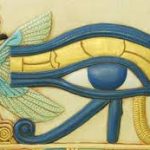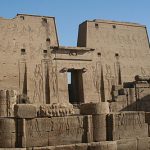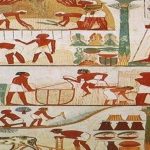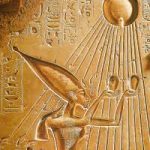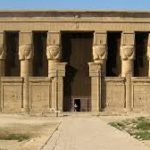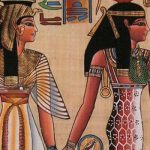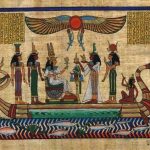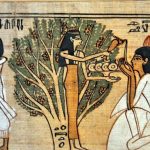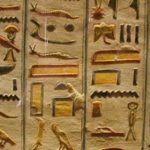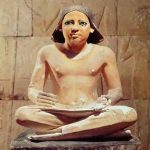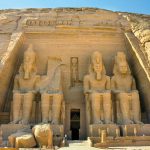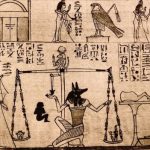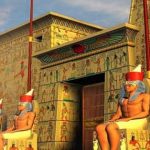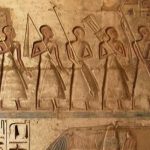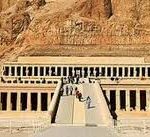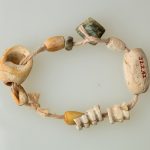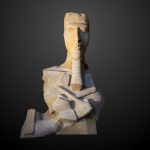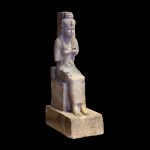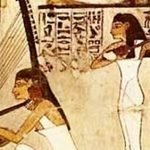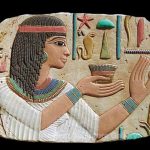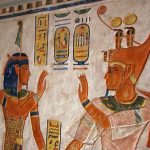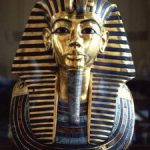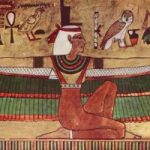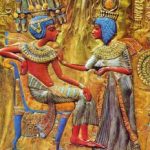
Gifted women actively participated in the weaving, grieving, and music organizations in Ancient Egypt. Moreover, being a professional in entertainment was another job that was occupied by women in Ancient Egypt (Hunt, 2009).Yet; there is no proof that they ever regulated male laborers, except the most senior imperial women. Hekenu and Iti were two eminent musicians of the Old Kingdom (Figure1A). These women were popular to the point that they even had their performances painted on other people’s tombs, which was a special privilege since it was common to only incorporate individuals from the perished family in the scenes (Hunt, 2009).
Figure 1: Examples of remarkable Ancient Egyptian women in art, music, science, and medicine. Panel (A) depicts the harpist “Hekenu” and the Cantor “Iti” (Source: The Egyptian Museum in Cairo, Egypt). Panel (B) shows the statues of “Nebet” and her husband from the British Museum in London originally belonging to the tomb of Nebamuncon (1300 B.C.). The Papyri and temple picture on the right side demonstrate the passion of Ancient Egyptian female musicians. Panel (C) illustrates the female Goddess Maat, who was the symbol of truth during the Ancient Egyptian time. Her energy was supposed to be strongly distributed and spread on the Earth (Source: The original drawing of this papyrus belongs to the temple decoration at Dendera). Panel (D) illustrates Peseshet on the left side and Merit-Ptah on the right side. Both were renowned Ancient Egyptian female physicians. Panel (E) is a drawing on the Temple wall of Tapputi-Belatekallim, who was an influential scientist and chemist in Ancient Egypt (Source: The British Museum, London, UK).
Other recorded occupations of Ancient Egyptian women were hair specialists, supervisors of the wig workshop, treasurers, writers, songstress, weavers, dancers, musicians, grievers, priestess’, and even directors of the imperial kingdom. One such recorded occupation was that of “Judge and Vizier to Pharaoh.” This position was held by a woman called “Nebet of the Old kingdom.” The “vizier” was the most capable individual after the lord Pharaoh, going about as his “correct hand man.” However, it is thought that “Nebet’s husband directed in the post whilst she held the title” (Figure1B).




